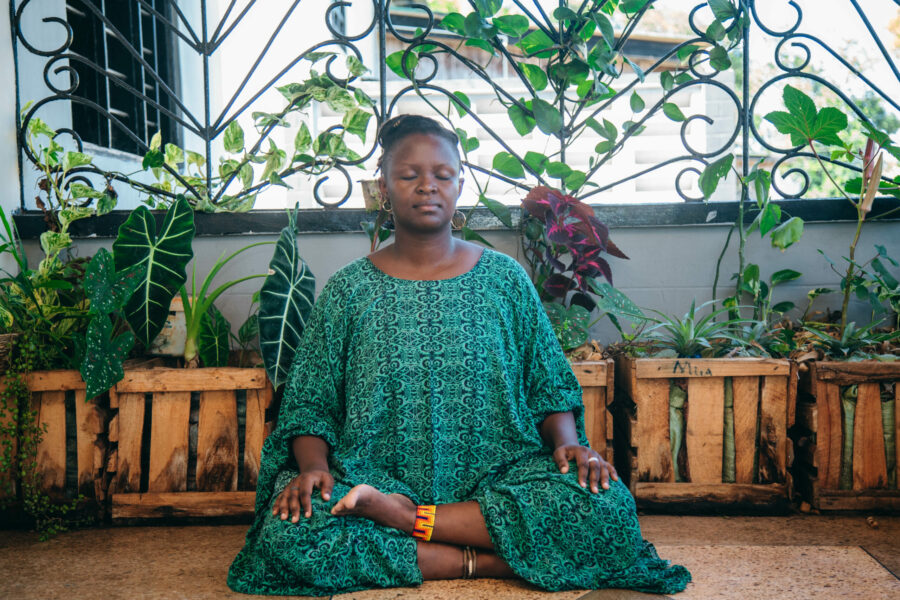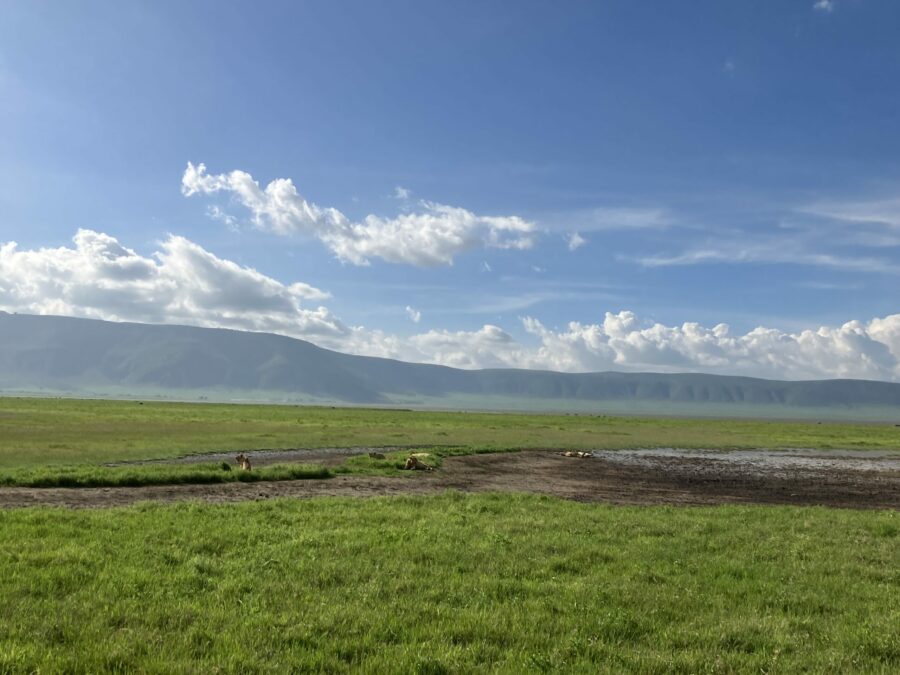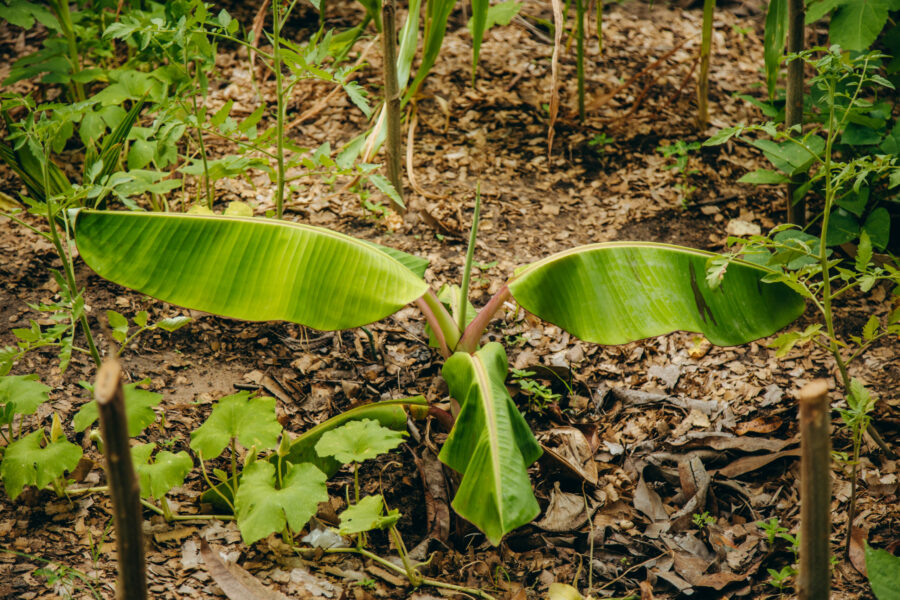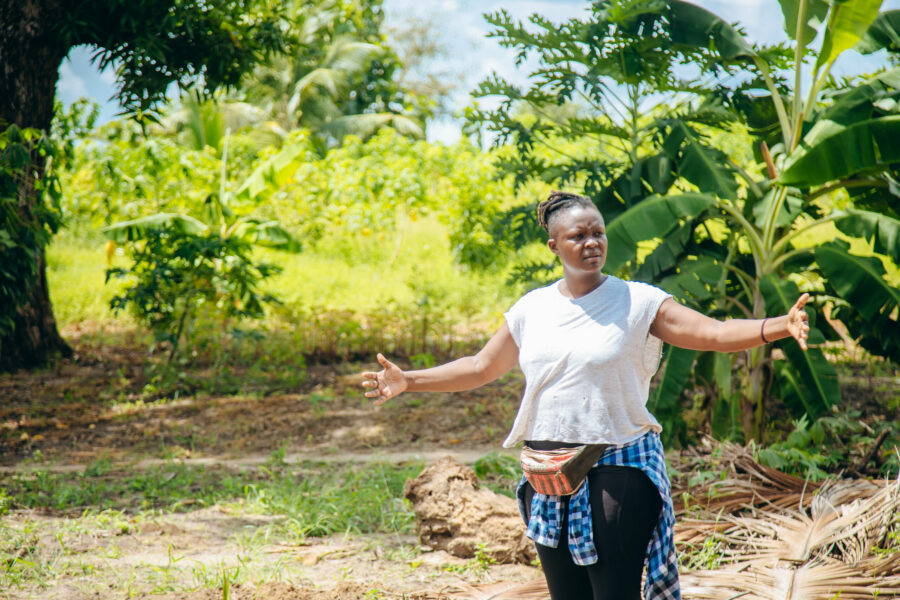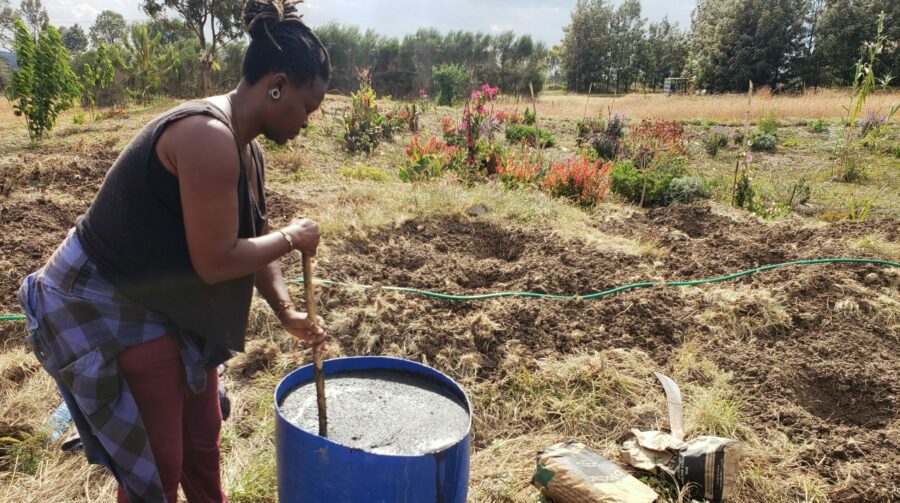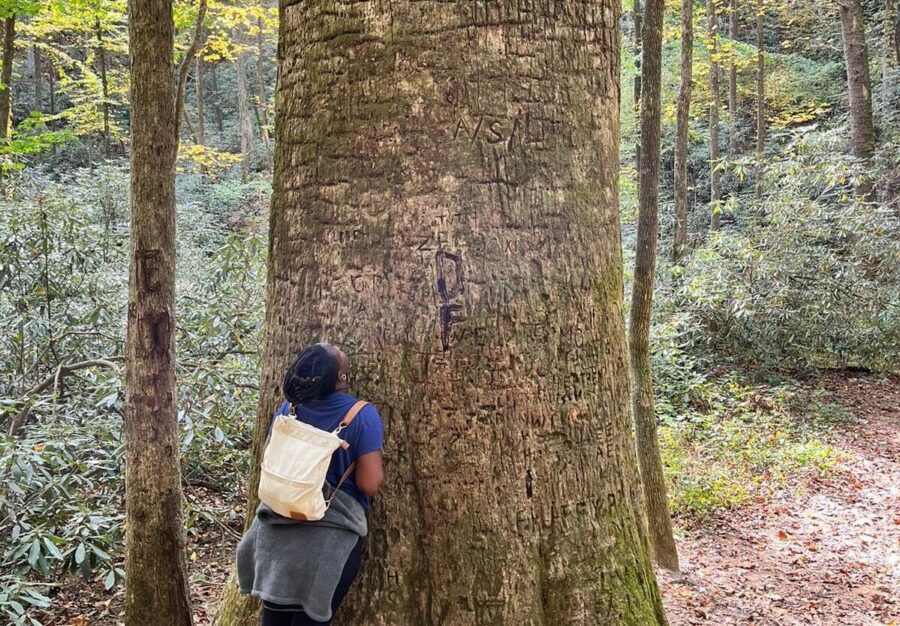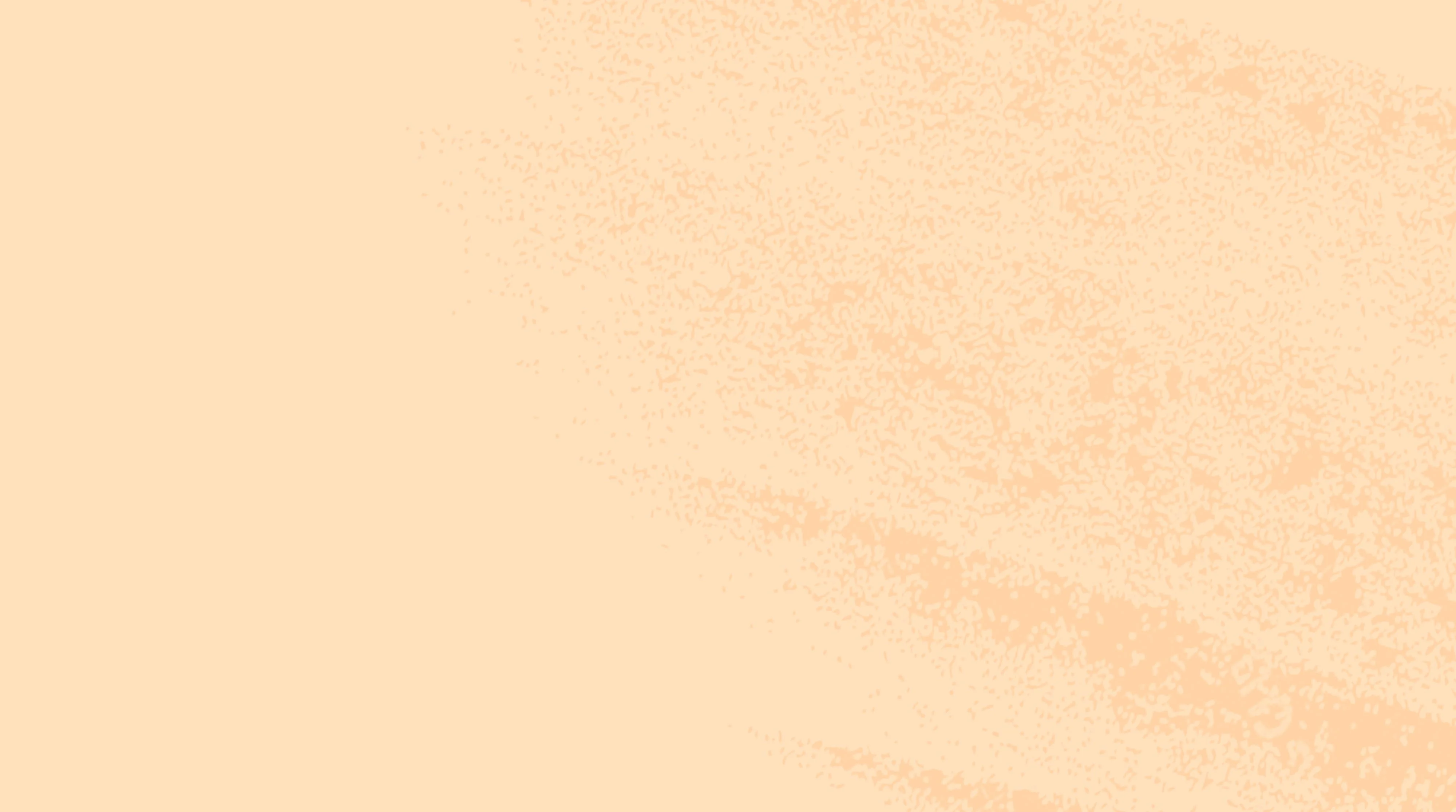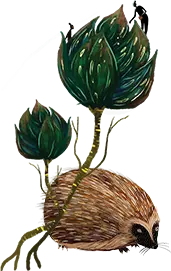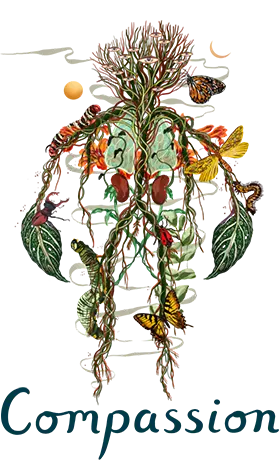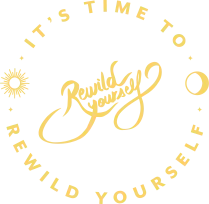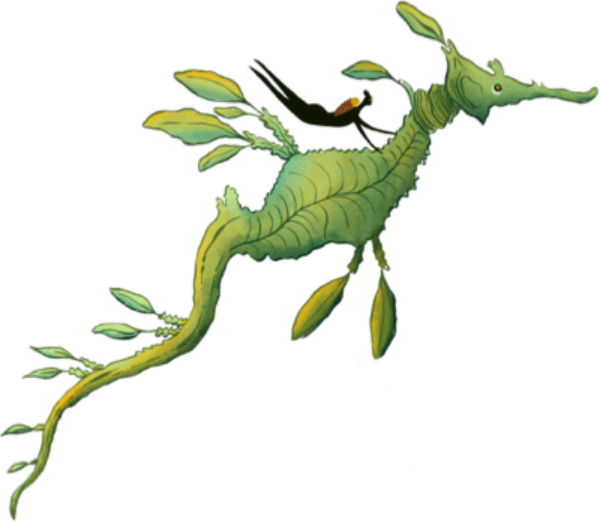



Rewild Yourself Champion 2024 /
Kai Njeri
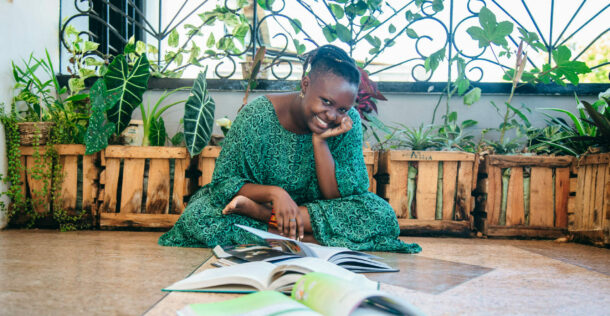

“Kai is many things all at once – a grower, gardener, designer, teacher, poet, healer, doula, campaigner and facilitator. In her own words, she is a “regenerative systems thinker and designer”. As far as we can tell, she is a force of Nature! Based in Tanga, Tanzania, Kai is tirelessly bettering lives through improved Nature connection, food sovereignty, sexual and reproductive health, and by tackling gender issues. But at the heart of all her work is Nature, as a source of physical and mental health, but also as a teacher, whose principles and systems can inspire the way we organise, relate to each other, and live our lives.”
How does time in Nature, and feeling connected to Nature, help you personally?
“It feels like going home. Especially in forests. I think in a past life, I was a baobab tree. In the forest, it feels like I become whole in a way that I can’t consciously describe, and I don’t know that I’m even interested in describing it! It’s okay for some things to be indescribable like that.
I call the forest the “great teacher”. I base a lot of my designs on forests. I go, I watch, I study the canopies, I just see how the trees interact with each other and I use that for my own life.”
What advice do you have for people looking for a better connection with Nature?
“My number one thing is to remember that Nature is not something other than you. We have this idea that Nature is ‘over there’. Yet, we are all expressions of Nature. I find, even when I’m in a city for a while, and don’t have easy access to Nature, just remembering that helps me to realize, “okay there is an entire forest inside of me” – I just need to see how to reach into it. Having a plant next to you that you can tend and interact with can be enough. At times it’s not what we go do out there, it’s what’s already in our space.”
What changes would you like to see to help more people access Nature and build positive, nurturing relationships with it?
“I always bring it back down to the personal. I have found myself in many rooms where we’re having these big policy conversations and many of the people there, you can tell, don’t feel connected to Nature. And I feel like, “You shouldn’t be in this room! Go walk amongst some trees, then let’s have this conversation”. So I want people to remember that we are not something other than Nature; we are Nature exactly. If we remember that, then our social structures, our cultural structures and systems, will be a reflection of that. Instead, I feel like we’re trying to start from the outside in, and that never works.”
